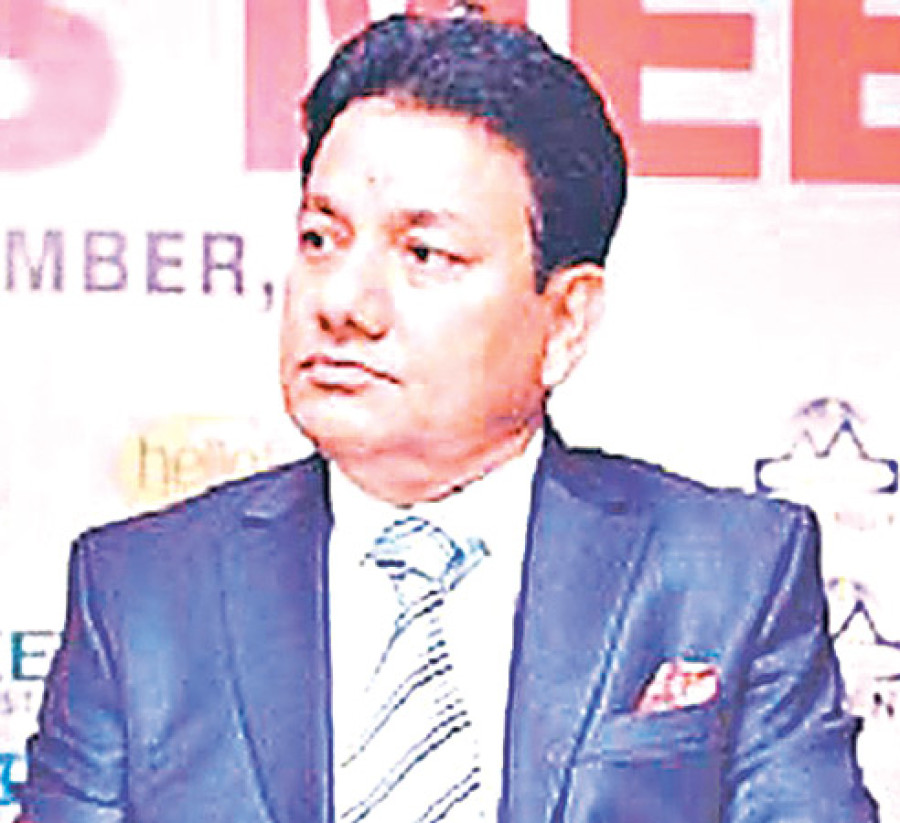Valley
SC orders banks to free Sumargi’s frozen funds
The Supreme Court on Tuesday issued an interim order to Nepal Rastra Bank and the Nepal Investment Bank Limited to release Rs2.19 billion ($21.38 million) belonging to businessman Ajeya Raj Sumargi that had been frozen by the NRB.
Kamal Dev Bhattarai
The Supreme Court on Tuesday issued an interim order to Nepal Rastra Bank and the Nepal Investment Bank Limited to release Rs2.19 billion ($21.38 million) belonging to businessman Ajeya Raj Sumargi that had been frozen by the NRB.
The Department of Money Laundering Investigation (DMLI) had earlier declared this amount ‘illegal’. Properties owned by Sumargi are under the department’s probe currently. The SC gave the order without holding discussion with the NRB and DMLI.
Responding to a writ filed by Tulsi Bahadur Karki, on behalf of Subas Chandra Poudel of Nepal Satellite Telecom on Sunday, a single bench of Justice Tej Bahadur KC on Tuesday stated “there was no transparent legal basis and reason to block the money” brought by Sumargi in the name of his company Nepal Satellite Telecom and that blocking of the cash would affect the company. The SC order states the plaintiff be allowed to withdraw the money upon request, on the condition that he is not allowed to take the fund and profit abroad, and does not affect any investigation being done by the DMLI and other government agencies.
The SC has summoned Nepal Satellite and the NRB for an intensive discussion on February 14, apart from directing them to present their positions in detail within 15 days.
Sumargi had moved the SC after his repeated attempts to release money through political lobbying failed. During his last tenure, then prime minister Pushpa Kamal Dahal had asked senior NRB officials the reason why the central bank refused to release money Sumargi had transferred from abroad.
The central bank had frozen Sumargi’s Rs2.19 billion deposited at NIBL around four years ago. The bank said he had failed to follow the norms of foreign exchange. In August 2015 the NRB asked Sumargi’s companies why they took loan from abroad, and to submit the basis for repayment, and where his company planned to utilise the money. It had asked Sumargi’s Muktishree Group to submit details about the company that was providing loan and repayment tenure.
Following the SC order, NRB officials said the central bank will closely examine the court order before making any decision. “We are yet to get the copy of the order,” said an NRB official, adding the central bank will consult all concerned departments tomorrow.
DMLI sources say the order will affect the ongoing probe on Sumargi’s properties. The move, taken in line with Section 15 of the Money Laundering Prevention Act, comes after a preliminary report, prepared jointly by the DMLI and the Central Investigation Bureau (CIB) of Nepal Police, found Sumargi’s involvement in illegal fund transfers from abroad with a motive to launder tainted money.
The initial probe report shows Sumargi, and firms affiliated to him, brought around Rs9 billion illegally to Nepal through “suspicious companies” based in tax havens, indicating shady business deals.
Sumargi and his companies have so far received around Rs13 billion from “suspicious companies” based in British Virgin Islands, Cyprus, Egypt and Belarus, according to a preliminary government report prepared by the Department of the Money Laundering Investigation, the Central Investigation Bureau of Nepal Police and the Nepal Rastra Bank.
This money, most of which is in the form of loans, started entering the country in January 2008 via Nabil Bank. Since then, NIBL has also been used for fund transfers, which continued till November 2013.The beneficiaries of 97 percent of the funds remitted from abroad are four companies owned by Sumargi - Nepal Satellite Telecom, Mukti Shree Pvt Ltd, Mukti Shree Cement and Mukti Shree Telecom.
The preliminary report of the DMLI and the CIB indicates Sumargi may have formed shell companies in tax havens to transfer illegally earned wealth from Nepal and remitted the funds back to the country in the name of investments and loans to launder tainted money.




 23.38°C Kathmandu
23.38°C Kathmandu















